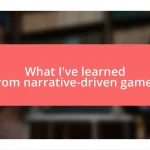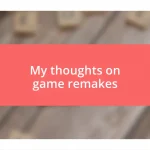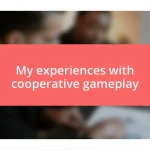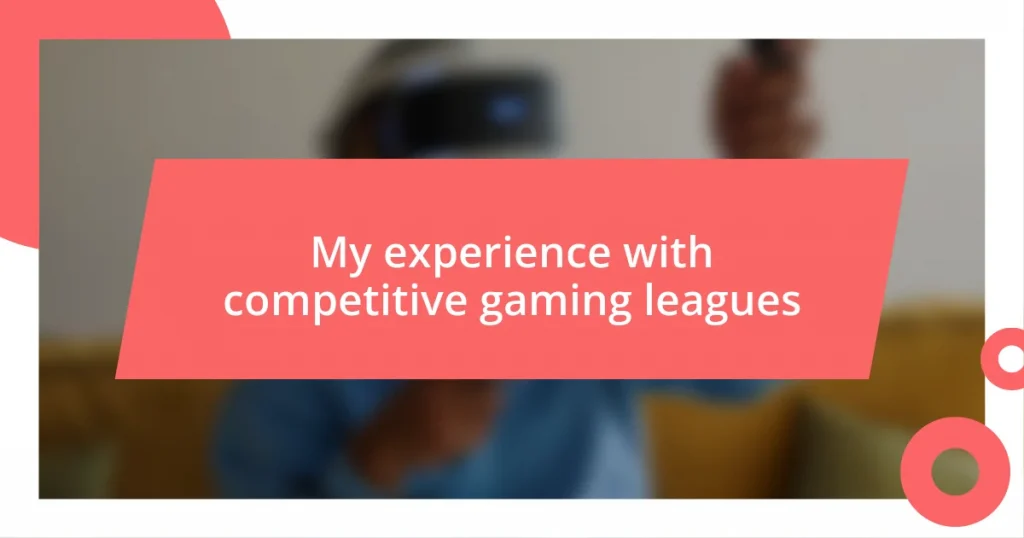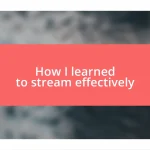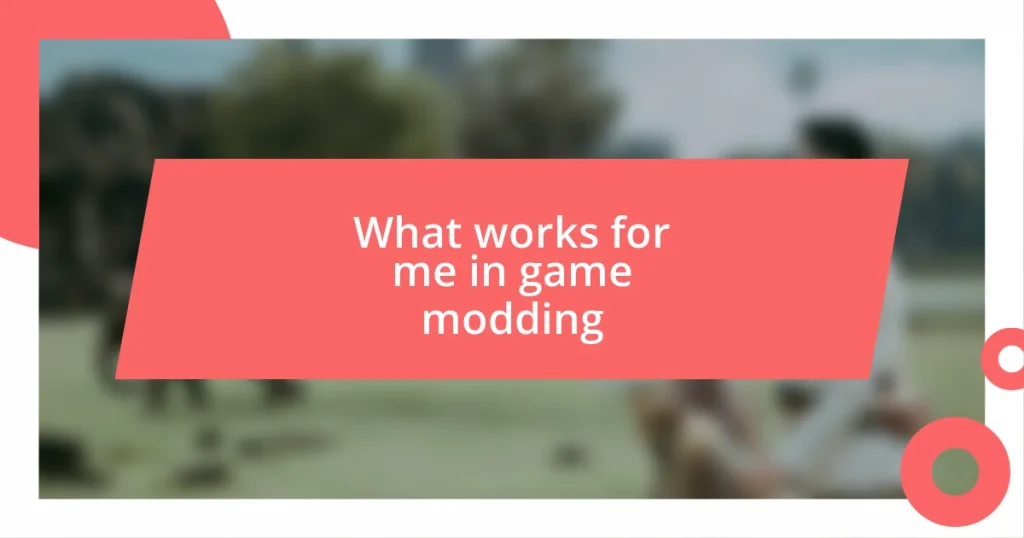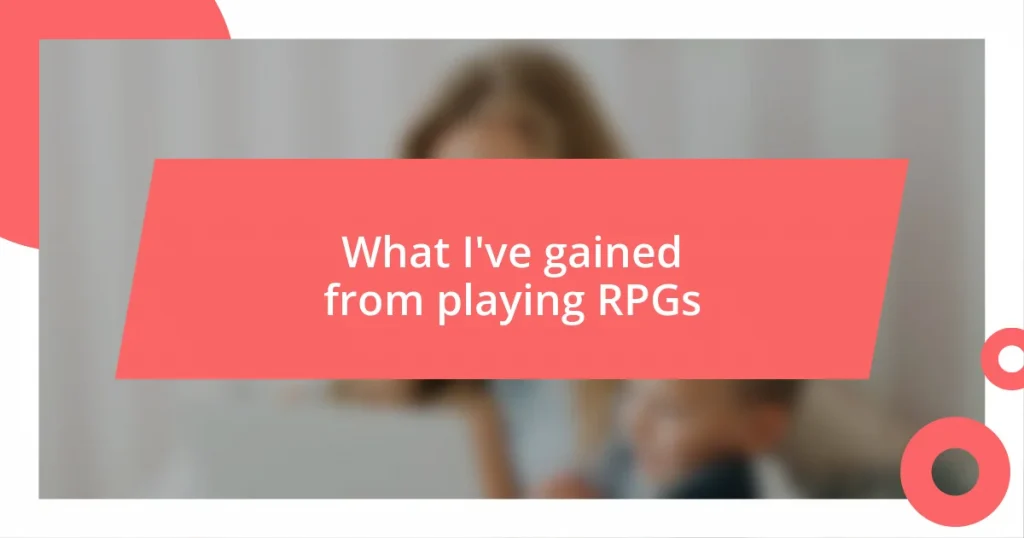Key takeaways:
- Competitive gaming fosters strong team dynamics, emphasizing the importance of communication, trust, and adaptability among teammates.
- Preparation and a positive mindset are crucial for success in tournaments, with regular practice and reflection on past performances driving improvement.
- Participating in esports provides valuable life lessons, such as emotional control, teamwork, and the significance of adaptability in facing unexpected challenges.
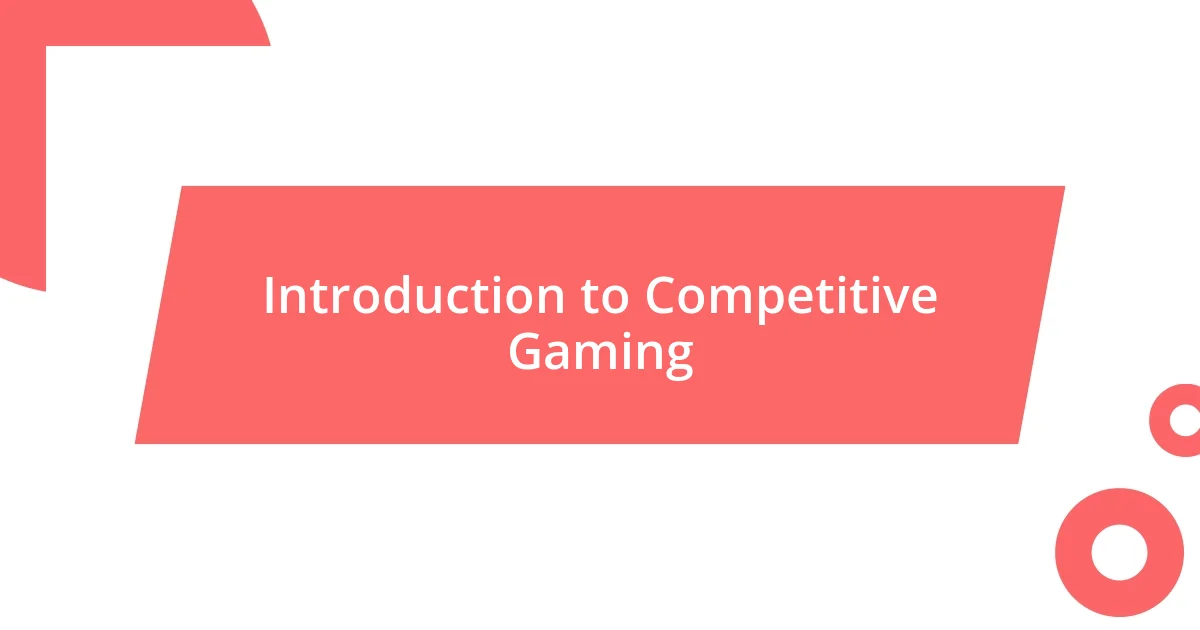
Introduction to Competitive Gaming
Competitive gaming, often referred to as esports, has evolved into a global phenomenon that captivates millions of players and viewers alike. I still vividly recall my first experience watching a live esports tournament; the energy in the arena was infectious, igniting a passion in me that would lead me to participate in leagues myself. Have you ever felt the adrenaline of competition? For many, it’s unmatched.
As I delved deeper into this world, I discovered that competitive gaming isn’t just about winning; it’s a community filled with shared passions and rivalries. I remember the late nights spent practicing with my team, strategizing over every match, and feeling the camaraderie grow stronger with each victory—or defeat. Those memories are etched in my mind, reminding me of the dedication required to improve in such a fast-paced environment.
For newcomers, the landscape can seem overwhelming, with various games, leagues, and platforms to choose from. I often ask myself, what drives each player to embark on this journey? My answer is simple: the thrill of improvement and the joy of teamwork. Engaging in competitive gaming allows us to push our limits while connecting with others who share our passion.

My First Competitive League Experience
My first competitive league experience was a whirlwind of emotions. Stepping into that virtual arena, with my teammates by my side and a shared goal ahead, was exhilarating yet nerve-wracking. I remember my heartbeat racing as we faced off against a team that had been heralded as the champions of the last season. It felt like David vs. Goliath, and that underdog feeling ignited a fire inside me that pushed us to give it our all.
In the days leading up to the event, we practiced relentlessly, often forgoing our usual hangouts to hone our skills. I can still recall the late nights spent in front of the screen, our voices mingling with laughter and the occasional frustrated shout when things didn’t go as planned. But each defeat brought us closer together, teaching us not only the mechanics of the game but also the art of resilience and trust among teammates. There’s a unique bond formed when you battle alongside friends, fueled by mutual support and shared ambitions.
The day of the tournament arrived, and the atmosphere was electric. I was filled with a rush of excitement as we took our seats, ready to face the challenge ahead. As the first match commenced, I quickly learned that communication was just as crucial as skill; without it, our strategies fell apart. It was a steep learning curve, but each moment spent on that battlefield transformed how I viewed teamwork and competition—insights I carry with me to this day.
| Aspect | My Experience |
|---|---|
| Emotional Atmosphere | Electric excitement and nerves |
| Team Dynamics | Developed resilience and trust |
| Communication Importance | Critical for success |
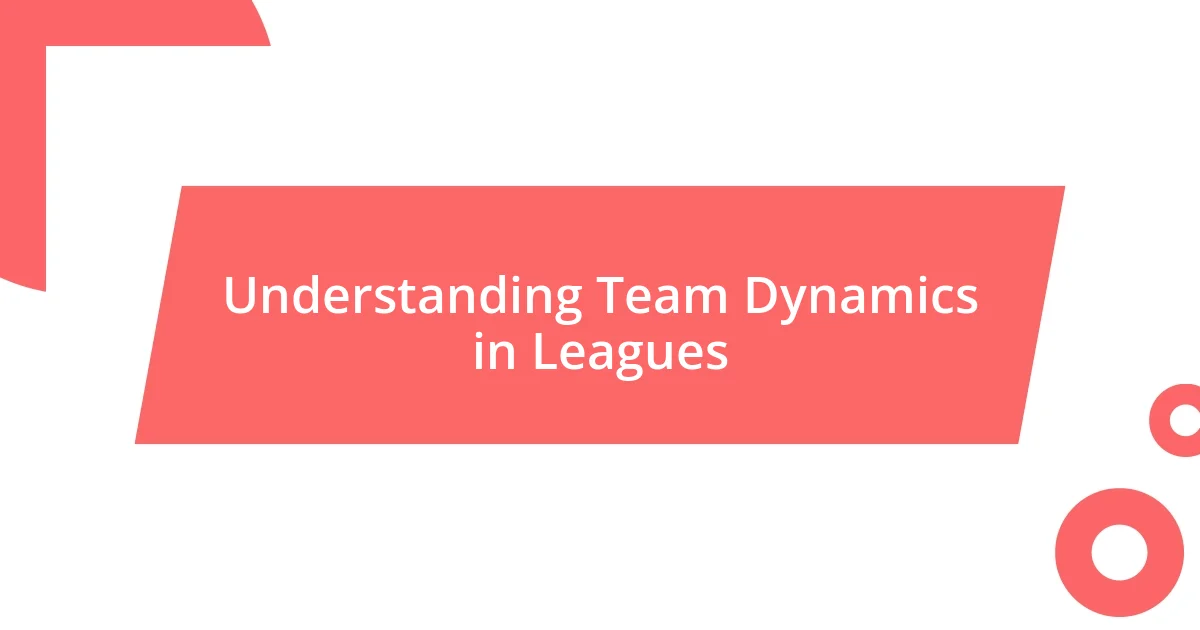
Understanding Team Dynamics in Leagues
Understanding the intricacies of team dynamics in competitive gaming leagues has been a fascinating journey for me. Each player brings their own unique strengths and weaknesses, and navigating those differences requires a delicate balance of understanding and communication. I remember one particular match where we faced significant tension; one teammate was exceptionally skilled but often overstepped during strategies. This led to conflicts, and I realized then how important it was to create a space where everyone felt heard and valued.
- Building trust and camaraderie is essential to prevent misunderstandings.
- Establishing clear roles helps in recognizing each player’s strengths.
- Regular feedback can pave the way for improvement and unity.
- Conflicts, when managed well, can lead to deeper connections within the team.
Reflecting on those moments, it’s clear to me that addressing team dynamics isn’t just about playing skills; it’s about emotional intelligence and the ability to adapt. Recognizing and respecting each teammate’s style plays a critical role in our success. During one intense scrim session, our communication broke down entirely, leading to a chaotic game. It was frustrating, but it also sparked a discussion that ultimately strengthened our bond and strategy moving forward. I learned that openness can transform potential conflict into an opportunity for growth, contributing to a stronger, more cohesive unit.
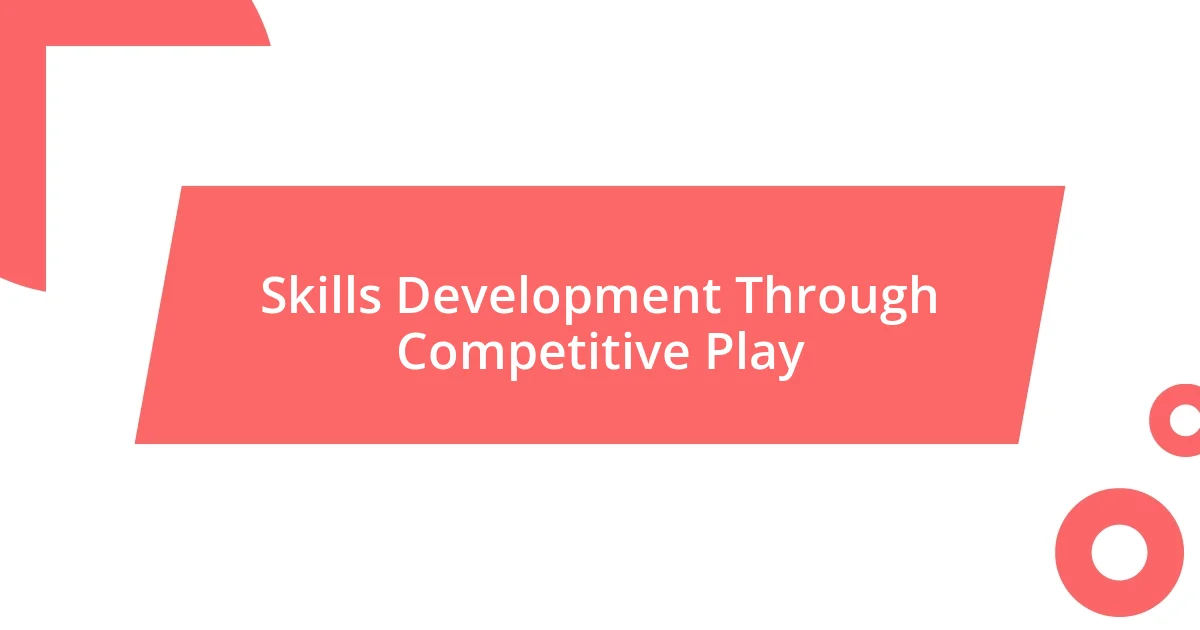
Skills Development Through Competitive Play
Participating in competitive gaming leagues has sharpened my skills in ways I never anticipated. Sometimes, I found myself immersed in fast-paced match scenarios that required not only precision but also quick decision-making. In one tournament, I vividly remember being faced with a sudden change in tactics during a heated match. My heart raced, but I had to think on my feet. It was exhilarating to realize that I could adapt rapidly, a skill that has spilled over into my everyday life too.
I’ve also developed a sharper sense of focus through competitive play. There’s something about the high stakes that keeps my attention locked in. I once had a match where everything around me seemed to fade away; it was just me and the game. The concentration I applied during that moment was intense, and afterward, I felt a sense of accomplishment and mental clarity. How often do we get the chance to truly push our mental limits and discover what we’re capable of? I’ve learned that competitive gaming can be a classroom, teaching us about ourselves along the way.
Moreover, I found invaluable lessons in emotional control. There were times when frustration threatened to derail my concentration, especially after a tough loss. I remember one particular instance where I had to take a deep breath and recalibrate my emotions before the next round. It was like a wake-up call that not only benefited my performance but also helped me manage stress in other areas of my life. I can’t help but wonder, isn’t it fascinating how gaming can teach us about dealing with real-life pressures?
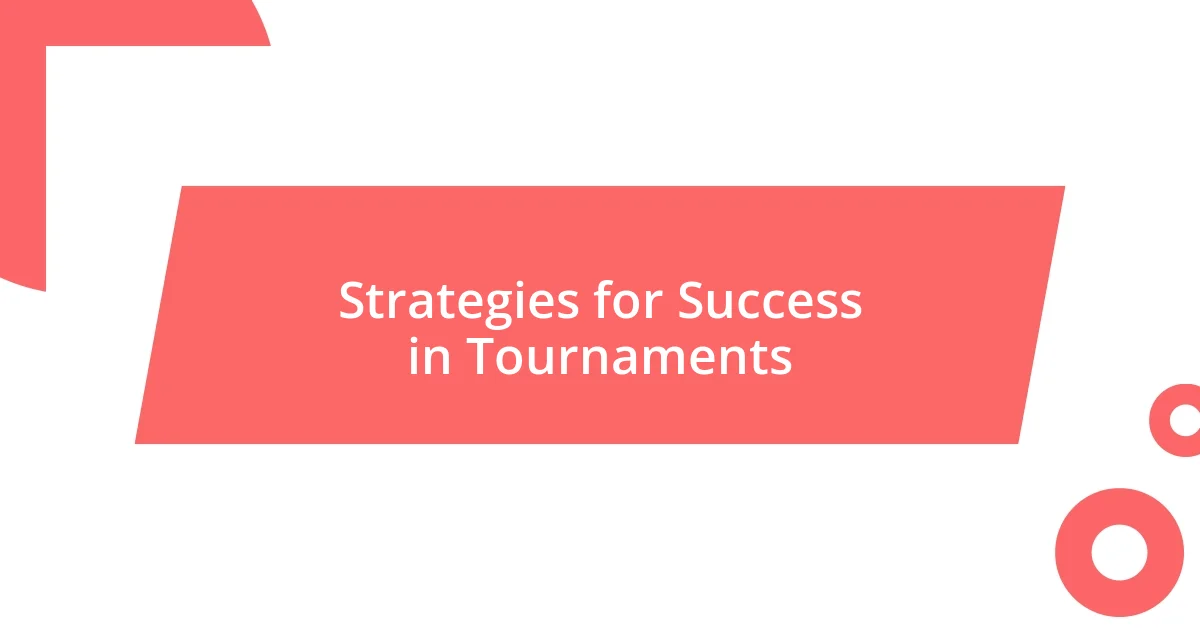
Strategies for Success in Tournaments
I’ve discovered that preparation is key to success in tournaments. I recall one event where my team put in countless hours practicing strategies and refining our skills. The more we practiced, the more coherent our gameplay became. It felt satisfying to see that dedication pay off when we won a crucial match, underscoring the importance of consistent training and preparation.
Mindset also plays a significant role in competitive settings. I remember walking into a major finals match, feeling a mix of excitement and nervousness. However, I made it a point to focus on staying positive, reminding myself that I was well-prepared. This mindset allowed me to play confidently. Have you ever noticed how a slight change in your mental state can alter your performance? For me, it shifted the energy from anxiety to excitement, which definitely impacted how I played.
Another effective strategy is to analyze past performances. After every tournament, my team would sit down to review our games, examining what worked and what didn’t. I found it helpful to reflect on both our victories and defeats. This practice not only honed our strategies but also built resilience. Losing can sting, but I learned that each setback is a stepping stone to improvement. How often do we give ourselves the chance to learn from our failures? Embracing this mindset transformed my approach to challenges in the game and beyond.
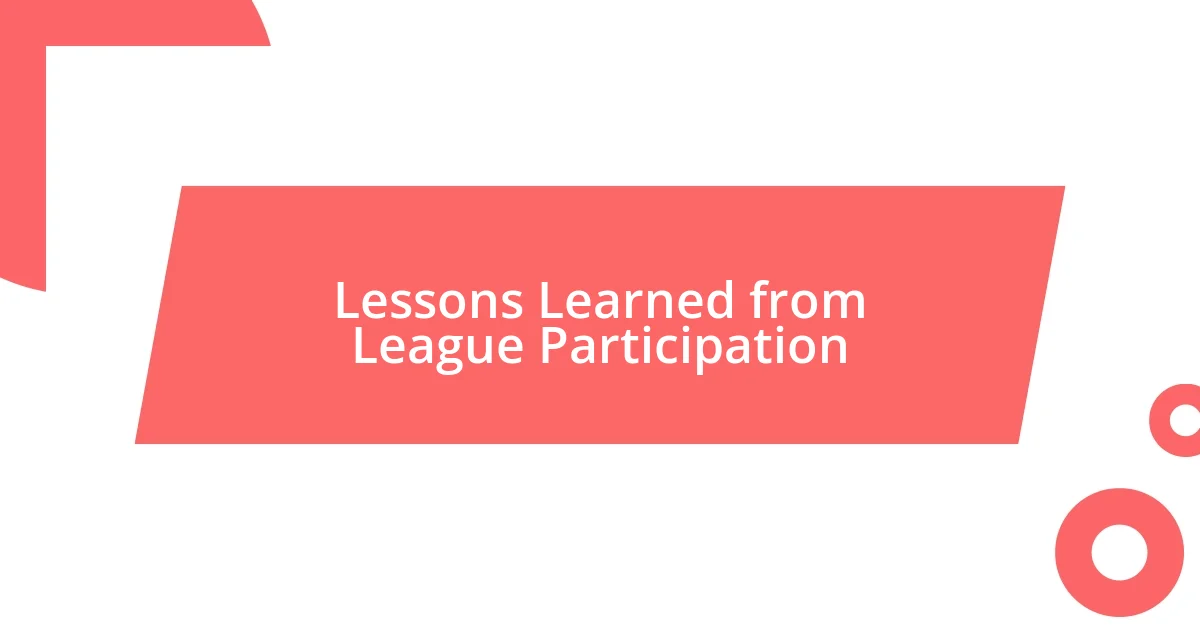
Lessons Learned from League Participation
Participating in competitive gaming leagues taught me the importance of teamwork. I remember one match where my teammate made an unexpected mistake that put us in a tight spot. Instead of panicking, we quickly recalibrated our strategy, communicating our moves with precision. That experience highlighted how vital trust and collaboration are in both gaming and real life. Have you ever felt that collective pressure and how it can either ignite or extinguish a team’s spirit?
Another lesson I embraced is the value of adaptability. There was a specific tournament where our opponents came out with an entirely different playstyle than we had anticipated. Initially, I felt blindsided, but I realized that adapting our strategy mid-game was crucial. Embracing that unpredictability transformed my gameplay. It made me wonder, how often do we get stuck in our ways, reluctant to pivot when faced with unexpected challenges?
Lastly, I learned about the significance of reflection. After a particularly tough series of matches, I took a step back to think about what went wrong and what could be improved. This wasn’t just about tactics but also understanding my emotional responses. I discovered that acknowledging my feelings—whether disappointment or frustration—allowed me to grow. How often do you find yourself pushing aside emotions instead of using them for personal growth? That act of self-reflection became a powerful tool in my gaming journey and, quite frankly, in my life as well.



